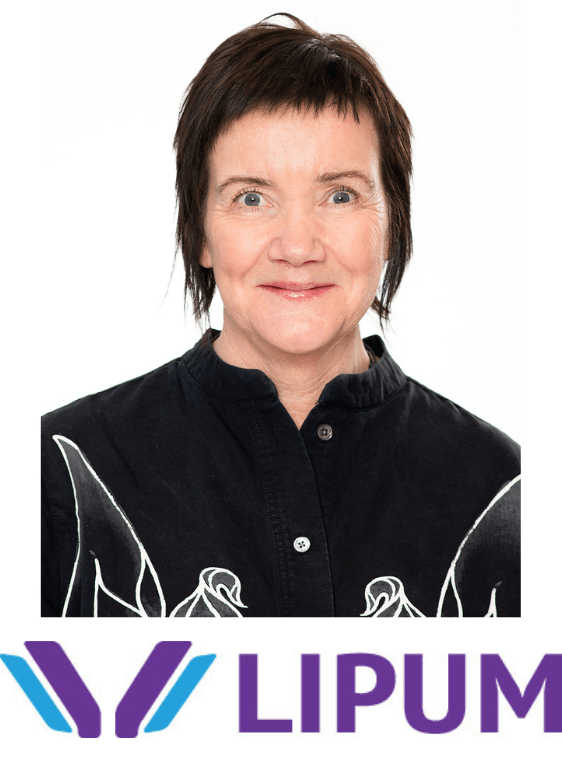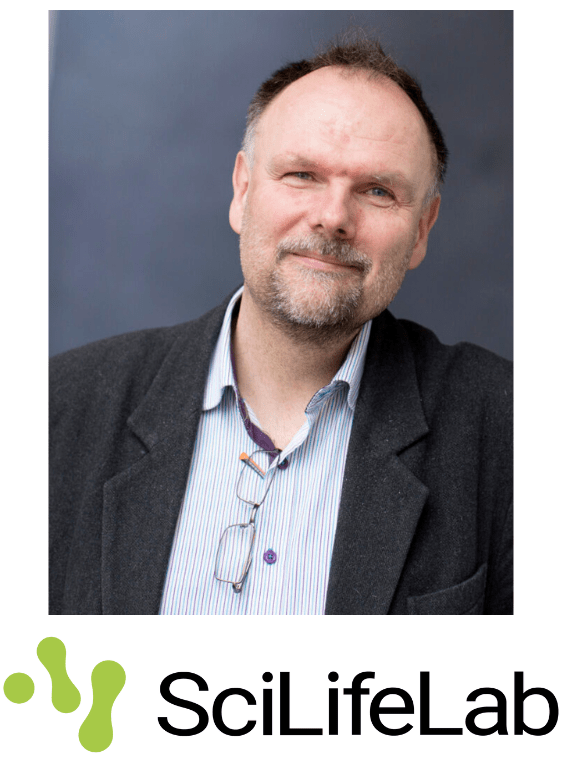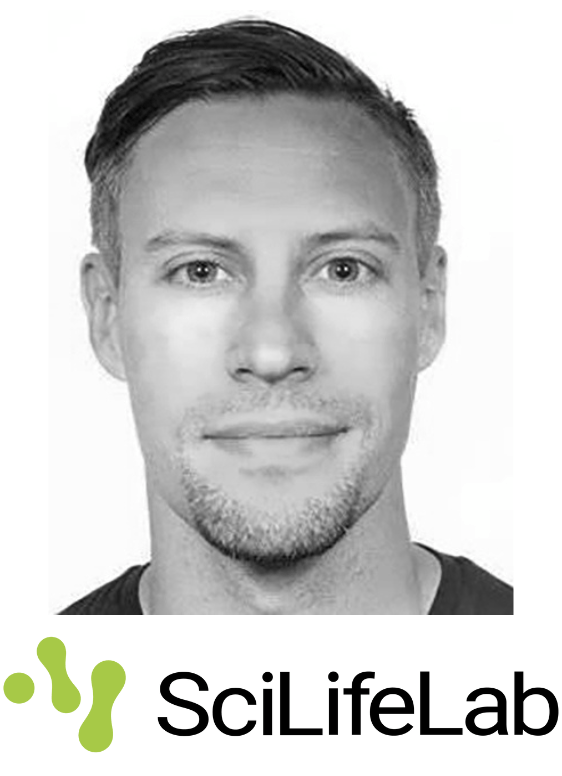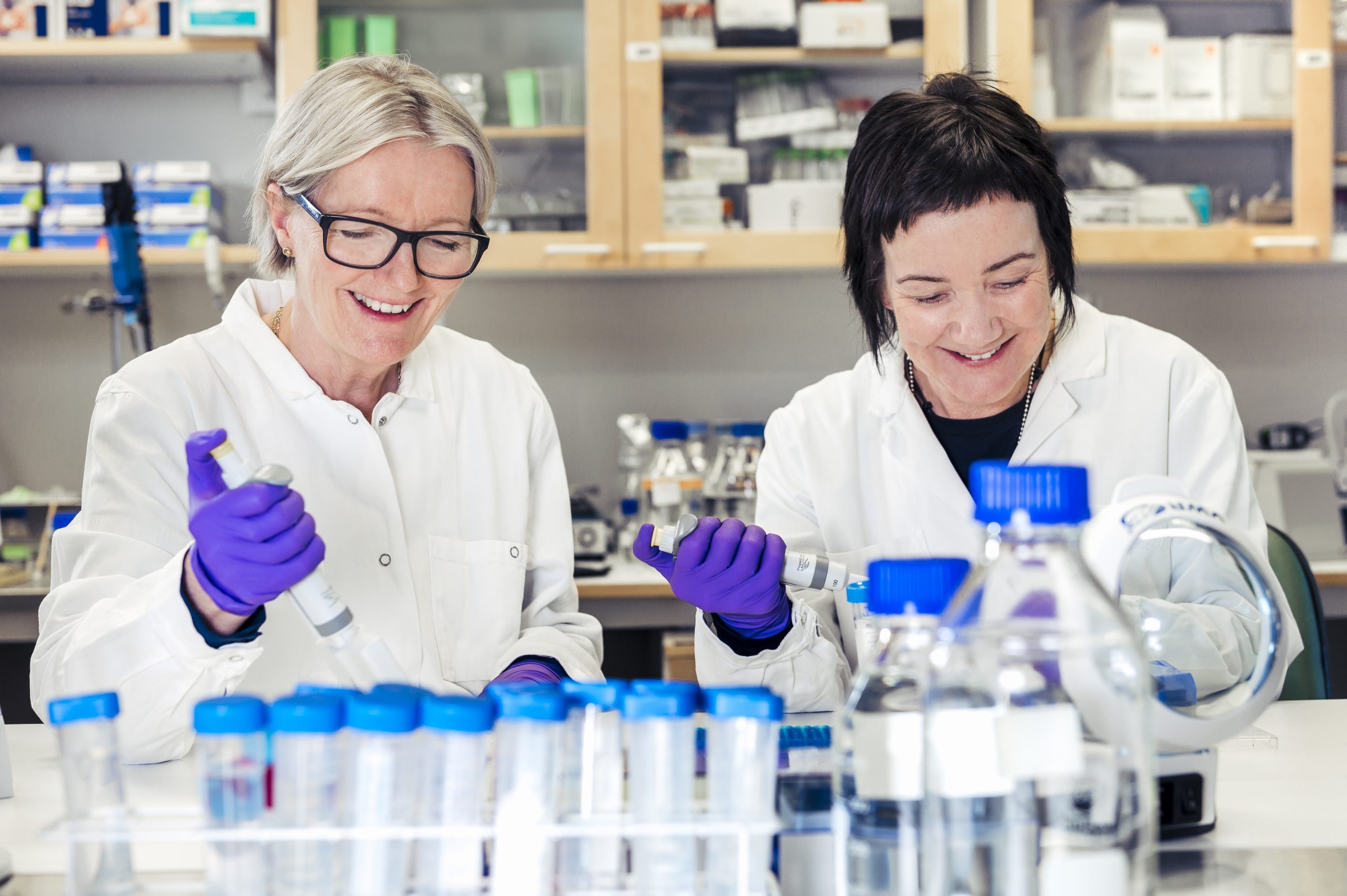Industry case: With support from two SciLifeLab service areas, Lipum AB develops a biomarker assay to support the development of a novel drug for chronic inflammation
The biopharmaceutical company Lipum specializes in the discovery and development of novel drugs to treat diseases related to chronic inflammation. The company has developed its first candidate drug in collaboration with the SciLifeLab Drug Discovery and Development Platform and developed a new type of analysis assay with the SciLifeLab Affinity Proteomics-Uppsala Unit, belonging to the Clinical Proteomics and Immunology Platform.
“Our business is all focused on the antibody SOL-116, our candidate drug targeting the protein Bile Salt-Stimulated Lipase (BSSL), that was originally developed with the Drug Discovery and Development platform at SciLifeLab. Today, we are evaluating it in a clinical phase I study where the safety and tolerability is tested”, says Susanne Lindquist, CSO and one of the founders of Lipum.
Though the mode of action of BSSL is not completely mapped, it is a promising novel target for treatment of chronic inflammation since data indicates it is a proinflammatory component of the innate immune system.
“Early on in the project, it was clear that conventional humanization of the antibody did not work in our case. In collaboration with the Drug Discovery and Development Platform we identified a synthetically generated human antibody using the information from the binding sequence of the murine antibody that we already had. For our initial project when we were still 100% academic scientists, we would not have been able to move on without SciLifeLab. Today it is clear that at that early stage, we did not know what we did not know”, says Susanne Lindquist.
The SciLifeLab Drug Discovery and Development platform offers integrated drug discovery efforts to the Swedish academic research community. The offer includes industry-standard infrastructure, expertise, and strategic support for technology development or to help progress projects toward a preclinical proof-of-concept. In the case with the project that became the Lipum company, the platform was able to select a few binders as candidates to investigate further from a project-specific antibody library.
“When we take on a project at the Drug Discovery and Development (DDD) platform, we always discuss pharmaceutical development in a broad context. In the case of the BSSL antibody, we saw the need for good biomarker assays to identify suitable cohorts of patients and to demonstrate a pharmacological effect of the drug candidate. However, as DDD does not work with biomarker assay development, we suggested that Lipum contacted SciLifeLab Affinity Proteomics – Uppsala Unit for that part”, says Kristian Sandberg, Platform co-Director SciLifeLab Drug Discovery and Development Platform.
As the project matured, Lipum thus engaged with SciLifeLab in a second project, aiming to develop a protocol for an assay to measure the concentration of BSSL in clinical samples, as the concentration of BSSL in blood is associated with the disease activity score in rheumatoid arthritis, an autoimmune and inflammatory disease.
“Also for the second collaboration with SciLifeLab, focusing on assay development, the support from SciLifeLab was key. We are developing a novel antibody-treatment for inflammatory diseases, primarily rheumatoid arthritis, that has the potential to be a completely new therapy. To monitor the patients BSSL plasma levels will be essential in the clinical trials”, says Susanne Lindquist.
The assay that was developed with the Affinity Proteomics-Uppsala Unit infrastructure at SciLifeLab is based on electrochemiluminescence, a technology developed by Meso Scale Discovery (MSD). It is a well-known technology and an open platform with possibilities of running both in-house and commercial assays in single and multiplex format. “We have used this technology within SciLifeLab for many years in studies ranging from measuring cytokines in plasma to IgA antibodies in nasal swabs”, says Mikael Åberg, head of the Affinity Proteomics-Uppsala infrastructure unit.
“Thanks to a SciLifeLab Expensive Instrument Call we were recently able to upgrade our MSD lab and this was the first assay we developed and ran on the new MSD instrument”, he continues. This is an example of how infrastructure-users, from academia, industry or healthcare, in collaboration drive technology development and access. The Umeå based company Lipum was founded 2010, based on a discovery made 25 year’s ago when Professor Olle Hernell and his group was studying breast milk and nutrition in newborn infants , and focused on the milk protein that we know today as bile salt-stimulated lipase (BSSL). Today, Lipum has 5 employees, some 15 committed consultants and continues the development of drug candidates targeting inflammatory disease.

Lipum AB
Susanne Lindquist
Co-founder and Head of Research (CSO)
Lipum AB
susanne.lindquist@lipum.se

SciLifeLab
Kristian Sandberg
Platform Co-Director
Drug Discovery and Development platform
kristian.sandberg@scilifelab.uu.se

SciLifeLab
Mikael Åberg
Head of Unit
Affinity Proteomics – Uppsala
Mikael.Aberg@medsci.uu.se





